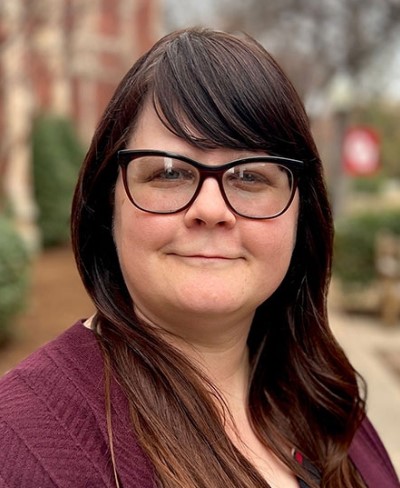Alumni Spotlight
Anthropology and history

Name: Sarah Trabert
Professional title: Associate Professor
Organization: University of Oklahoma
Major: Anthropology and minor in history
Graduated from K-State: 2008
When written: August 2024
Sarah Trabert, a community college transfer student, graduated in 2008 with an anthropology major and history minor. She wasn’t very involved in campus activities, but she did volunteer in Dr. Lauren Ritterbush’s archaeology lab.
“The anthropology faculty—especially Dr. Ritterbush and Dr. Brad Logan—were fantastic and gave me a great deal of professional advice and research experience that allowed me to get into a wonderful graduate program.”
She also participated in the McNair Scholars Program and considers that experience vital to her success.
“I am a first-generation graduate student, and I knew nothing about what would happen after I graduated. The McNair program provided me funding to spend a summer conducting my own research rather than working my usual job at Walmart. That led me to win a conference presentation award and publish my research, setting me on the path to becoming a professor. I am incredibly grateful for these experiences and mentorship.”
After K-State, Trabert earned her M.A. and Ph.D. in anthropology from the University of Iowa in 2015. She was immediately hired as an assistant professor by the University of Oklahoma, where she is now an associate professor.
She is part of a team that’s using archaeological materials, historical sources and Indigenous knowledge to understand when, why and how domestic horses transformed human life after being reintroduced to North America. The team’s study, “Early Dispersal of Domestic Horses in the Great Plains and Northern Rockies,” was published in Science in 2023, and they received the Newcomb Cleveland Prize for it in 2024.
“I loved all of my anthropology and history classes at K-State. I had wonderful professors, and I still draw on the foundational knowledge I gained there to teach a whole new generation of students today.”